Oof. This is quite the week for hot, muggy, and smoky conditions in the United States. We are seeing all sorts of alerts across the country.
The dew point will reach more than 70 in the next ten days in more than half of the country. In other words, millions will be lucky enough to experience jungle-like conditions. (For reference: dew point <50 is comfy; 60-65 feels sticky; >65 is muggy; >70 is tropical.)
But all of the above isn’t necessarily a surprise. Meteorologists predicted an unusual heat this summer, with a number of areas to experience temperatures above normal.
The reason for this depends on region:
Northeast: Ocean temperatures higher than normal, which increases air temperatures.
South: Heat dome from Mexico, one the strongest ever recorded. According to Climate Central— a climate science non-profit— climate change made this extreme heatwave at least five times more likely.
West: Drier-than-normal thanks to El Niño.
Heat illness
The biggest health concern with high heat indexes (combination of temperature and humidity) is “heat imbalance”—the heat the body produces is more than the heat it looses. The body typically fixes this with sweat, but in extreme heat it’s sometimes not enough. The heat can build up inside causing a wide range of symptoms, including death.
We can already see an uptick in emergency room visits (per 100,000) for heat-related illnesses thanks to CDC’s super cool real-time surveillance tracker. Unfortunately, we’ve already seen a number of deaths. There have been two in Texas reported: a 14-year-old hiker in Big Bend National Park and a postal worker on his route in Dallas.
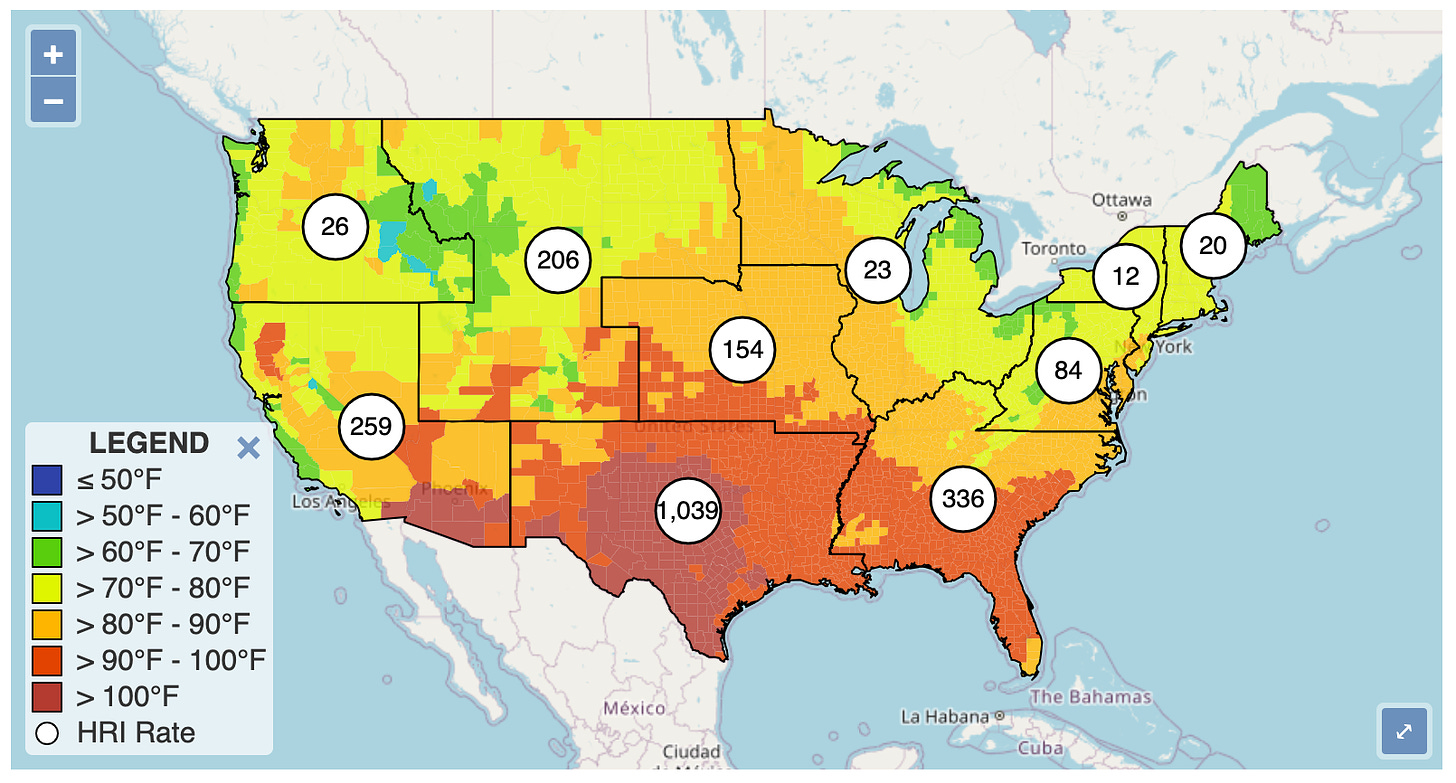
Anyone can be at risk, but there are particularly high-risk groups:
People over 65
Infants and children
Pregnant people
People with heart or lung conditions
Athletes
Outdoor workers
Those in urban areas
Heat illness is preventable. We can actively help our bodies with the internal heat balance. The major source of heat buildup is from physical activity. Limit this outside, if possible. Other things that help:
Hydration. This means water. Not Red Bull. Not Gatorade. Water. Limit alcohol.
Stay cool in air-conditioned areas.
Wear lightweight, light-colored, loose-fitting clothes.
Heat illness can creep up fast. The CDC put together a helpful chart of signs and symptoms to look out for, and what to do depending on severity.
Bottom line
It’s a scorcher out there, and it’s not even July. Take the heat seriously, as it’s only increasing heat-related illnesses. They are preventable. Stay cool.
Love, YLE
The YLE archive can be found here. In case you missed it:
“Your Local Epidemiologist (YLE)” is written by Dr. Katelyn Jetelina, MPH PhD—an epidemiologist, wife, and mom of two little girls. During the day she is a senior scientific consultant to a number of organizations. At night she writes this newsletter. Her main goal is to “translate” the ever-evolving public health world so that people will be well equipped to make evidence-based decisions. This newsletter is free thanks to the generous support of fellow YLE community members. To support this effort, subscribe below:





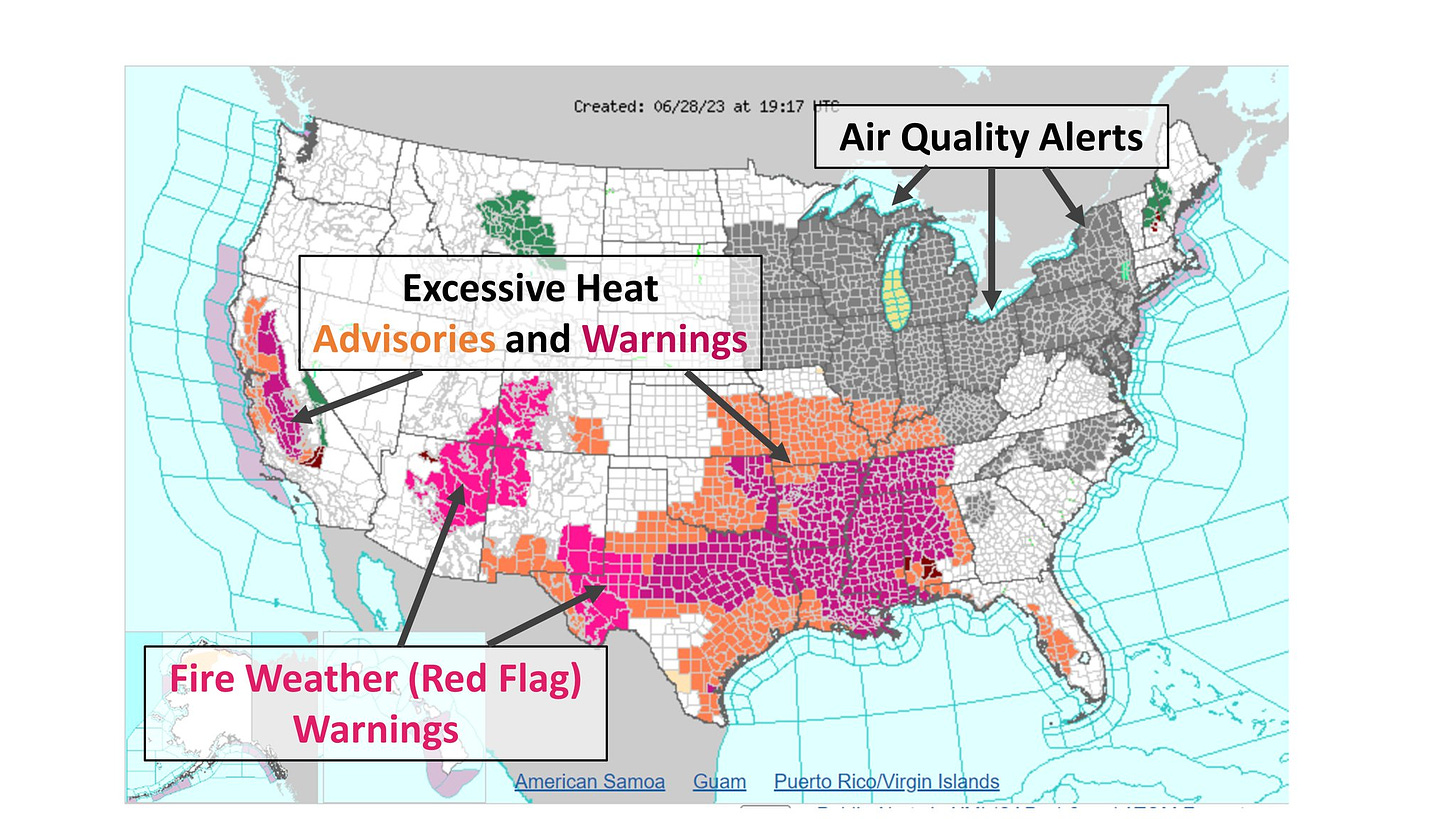
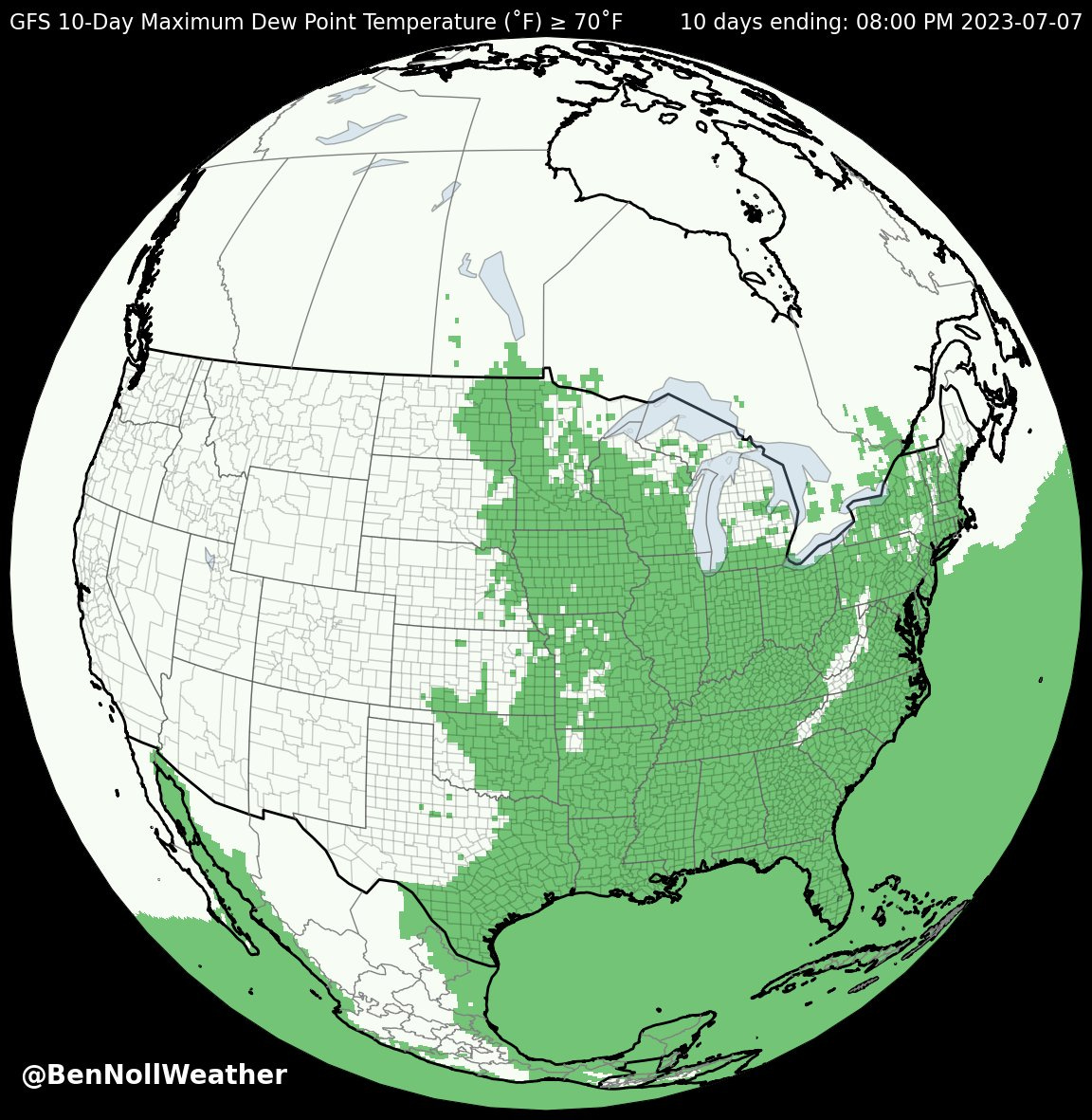
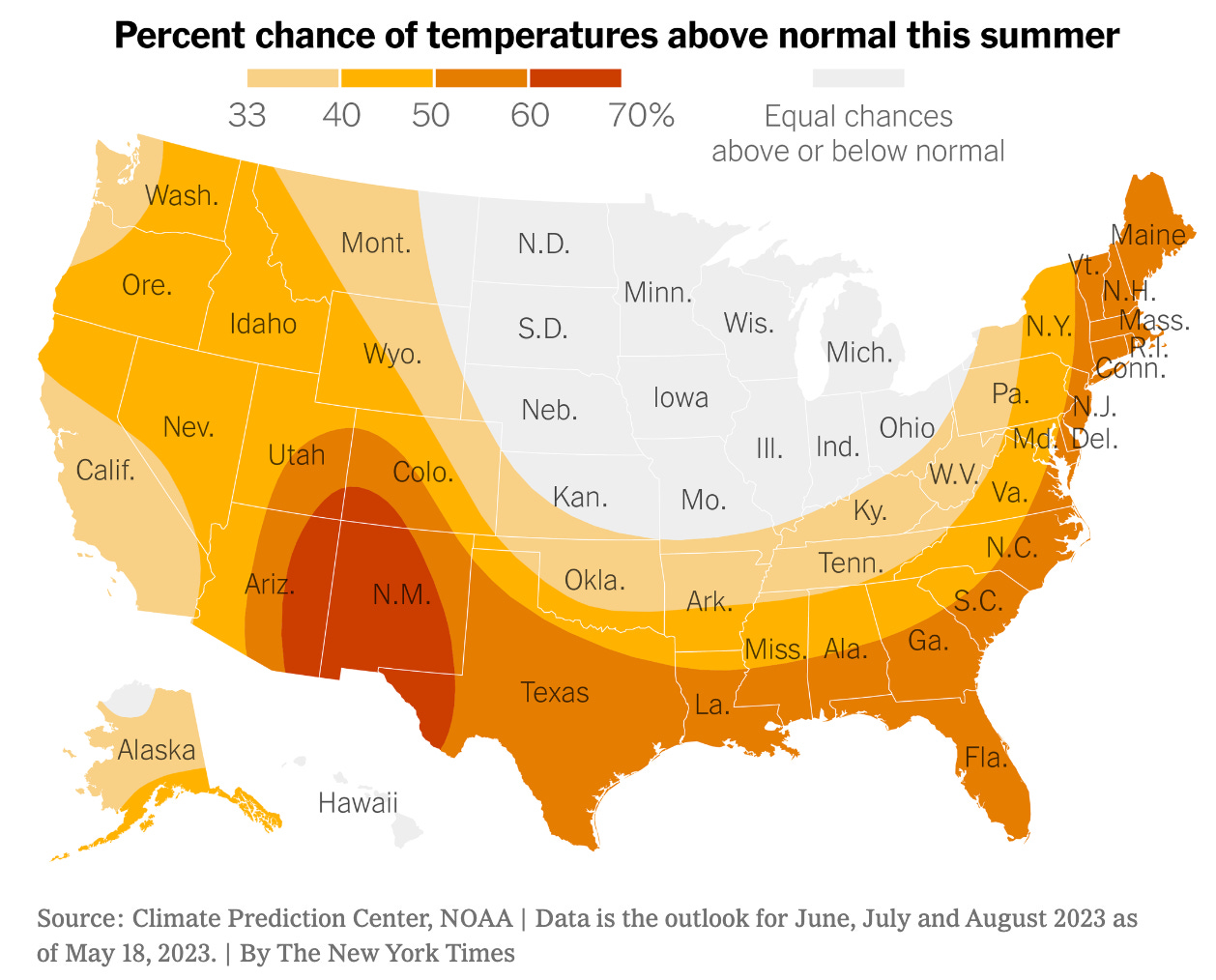
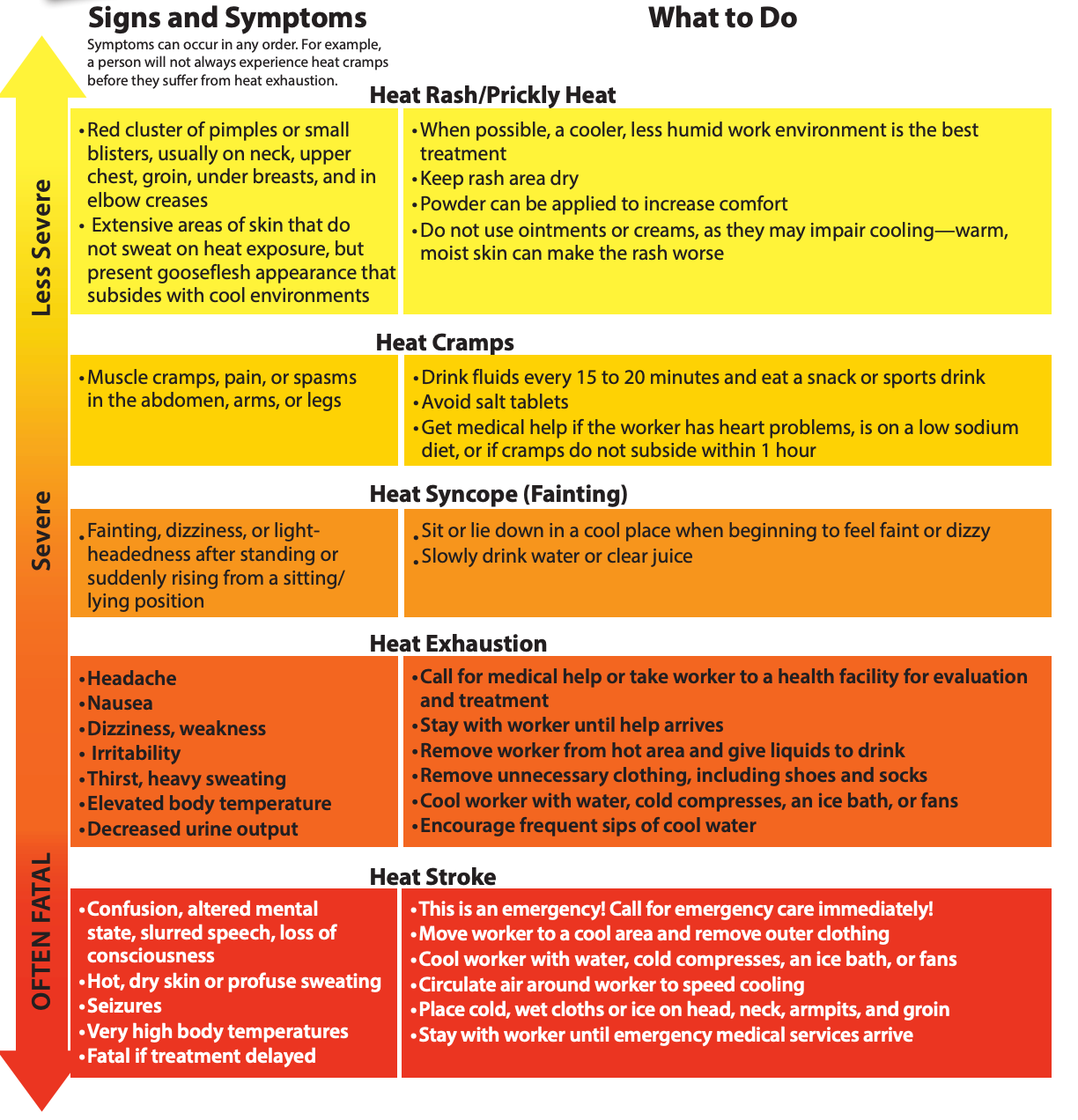
I saw these incredibly important tidbits in yesterday’s Nature Briefing (on 6/28/23), and felt that this information about safe, simple, effective ways to cool down should get much wider attention. (Doesn't look like I can include links - sorry!)
Podcast: the smart way to stay cool
For a shortcut to relief in hot weather, immerse your hands in cool water, biologist Craig Heller tells a Scientific American podcast. The hairless skin on our palms, soles and upper face contain special blood vessels — arteriovenous anastomoses (AVAs) — that offer a more direct connection to the core of the body, bypassing the delicate capillaries. Gently cooling this skin helps you to chill out fast — but avoid freezing-cold water, which will cause the AVAs to slam closed. What not to do: use ice or a wet towel on the back of your neck. You’ll be misleading your brain’s thermostat, which uses the temperature of this area to trigger your body’s natural cooling methods.
Science, Quickly podcast | 11 min listen or 8 min read
The coldest summer of the rest of your life.